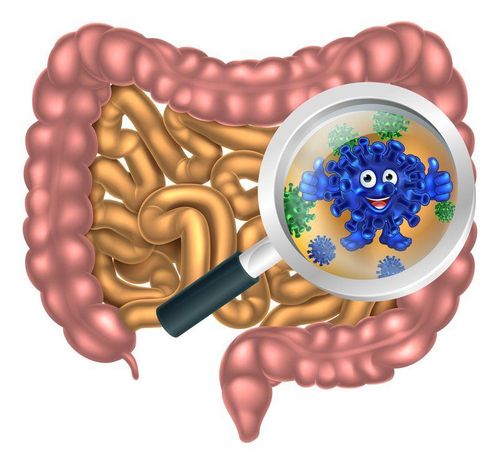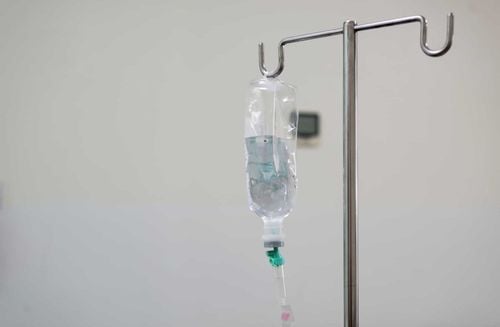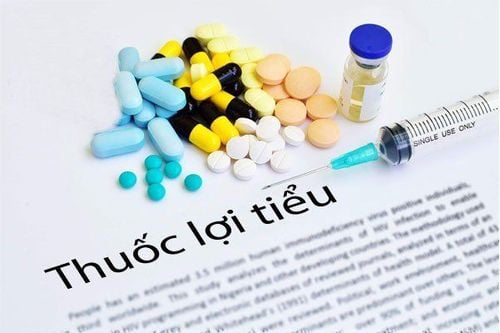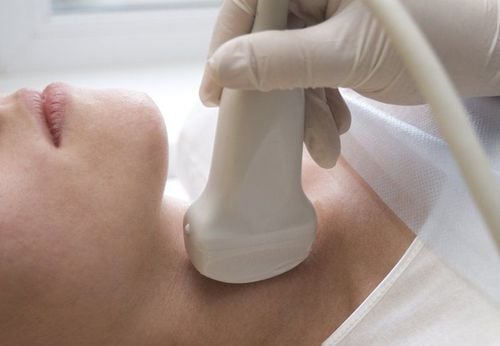This is an automatically translated article.
Hyponatremia is one of the common metabolic disorders in emergency resuscitation. Patients may have hyponatremia alone or in association with another medical condition.
1. Hyponatremia
Hyponatremia is one of the most common metabolic disorders clinically, especially in intensive care patients or stroke patients.
In the body, sodium is a substance that plays a very important role in the regulation and balance of electrolytes, determines the volume of the extracellular fluid environment, maintains a stable normal blood pressure, and also participates in supporting Supports the functioning of nerves and muscles.
Sodium is one of the decisive solutes of serum osmolality. When the concentration of sodium in the blood is reduced, it will lead to a decrease in osmotic pressure outside the cell, causing water molecules to move from the outside to the inside of the cell, creating an excess of water volume inside the cell. cause edema.
Normal blood sodium index in the body is 140 mmol/l (135 - 145 mmol/l, 135 - 145 mEq/l) with blood osmolality of 290 mosm/1kg H2O.
Hyponatremia is defined when the serum sodium concentration falls below 136 mmol/l.

Natri đóng vai trò quan trọng trong việc điều chỉnh và cân bằng điện giải cơ thể
Hyponatremia can occur in different situations with different causes such as:
For patients with hyponatremia whose plasma osmolal pressure rises above 290 mosmol/l: common in people with hyperglycaemia or those with indications for infusion of hypertonic solutions, often mannitol infusion. For patients with associated plasma osmolality in the range of 280 - 290 mosmol/l: these are cases of pseudohyponatremia. For patients with hyponatremia with a decrease in plasma osmolality below 280 mosmol/l in whom: Normal extracellular fluid volume: is dilutional hyponatremia, common in the hypertrophic syndrome Secretion of antidiuretic hormone ADH causes the production of vasopressin too much, causing the body to increase water retention. In addition, it can be seen in paraneoplastic syndromes, respiratory failure, cerebrovascular accident, hypothyroidism, adrenal insufficiency or due to excessive alcohol consumption... Extracellular fluid volume is increased: a state of hypothyroidism. Hypernatremia is accompanied by generalized salt and water retention, which is common in conditions such as congestive heart failure, cirrhosis of the liver, ascites, or nephrotic syndrome. Decreased extracellular fluid volume: may be due to renal sodium loss or extrarenal sodium loss (associated with gastrointestinal disorders). Some common diseases in this case such as kidney failure, after treatment of urinary tract obstruction, interstitial kidney disease, brain salt loss syndrome, due to use of diuretics or diarrhea, vomiting, trauma... side effects of certain medications the patient is taking, such as diuretics, antidepressants, or pain relievers.

Tác dụng phụ của một số loại thuốc có thể là nguyên nhân khiến hạ natri máu
Drinking too much water is also a cause of hyponatremia because it increases the amount of urine excreted by the kidneys, on the other hand, dilutes the sodium content in the blood. Due to hormonal changes in the body that are common in patients with adrenal insufficiency, it reduces the ability to produce hormones that maintain the balance between sodium, potassium and water volume in the body. body. In some cases, the use of ecstasy can cause hyponatremia and even death. In clinical practice, it is not always easy to determine the cause of hyponatremia. The identification and diagnosis of the cause must be carried out in a step-by-step, systematic manner in order to be able to diagnose early and promptly give the appropriate treatment for the patient.
Clinical manifestations of patients with hyponatremia:
Patient has headache, dizziness, fatigue, frequent drowsiness. Mood or restlessness, irritability, nausea and vomiting, some patients have drowsiness, loss of appetite, fear of water. Patients may experience convulsions, cramps, weaker muscles, or spasms with signs of edema and ascites. In some severe cases, coma, delirium, and loss of consciousness can gradually lead to death.

Hạ natri máu khiến bệnh nhân thường xuyên bị đau đầu mệt mỏi
2. Treatment of hyponatremia
Depending on the condition of each patient as well as the cause of hyponatremia, there are different treatment methods. The overall goal of treatment is to bring the blood sodium index to normal, limiting the risk of complications for the patient.
In clinical practice in patients with hyponatremia, normal or elevated vascular osmolality is of little value because of fluid displacement and neuronal edema. does not happen, or does happen but the body can correct itself.
On the contrary, if plasma osmolality is decreased, the clinical manifestation and the rate of correction of dysnatremia will greatly depend on the degree of hyponatremia at that time. Adjusting blood sodium levels too quickly will accelerate the destruction of myelin in the pontine center, causing severe damage leading to coma and death.
If the extracellular fluid volume is normal:
Mainly limit the amount of water taken into the body. Combine loop diuretics if the patient has symptoms of SIADH syndrome. Discontinue use if the cause of hyponatremia is drug-induced. In case of severe hyponatremia, an infusion of 3% or 10% hypertonic sodium chloride solution is indicated. If extracellular fluid volume increases:
Water restriction. Salt-reduced diet, every day should only eat from 3 to 6g of salt.
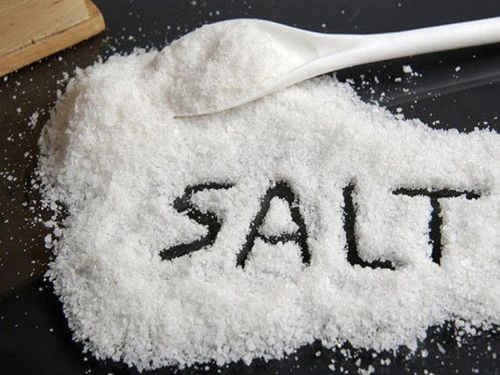
Hạn chế ăn muối nếu thể tích dịch ngoại bào tăng
Use diuretics. Note the combination of potassium supplements when giving diuretics to patients. If the extracellular fluid volume decreases:
If the patient has mild hyponatremia, no clinical manifestations, oral sodium supplementation can be given, combined with close monitoring of the patient. Limit water. If the patient has severe hyponatremia or is accompanied by gastrointestinal disturbances, an intravenous infusion of hypertonic sodium chloride is indicated. Note, do not infuse more than 12 mmol/l per day. Hyponatremia is an acute water-electrolyte disturbance common in the emergency department. Hyponatremia, if not detected and treated promptly, can cause severe complications such as cerebral edema, deep coma, and even death.
Vinmec International General Hospital is one of the hospitals that not only ensures professional quality with a team of leading medical doctors, modern equipment and technology, but also stands out for its examination and consultation services. comprehensive and professional medical consultation and treatment; civilized, polite, safe and sterile medical examination and treatment space. Customers when choosing to perform tests here can be completely assured of the accuracy of test results.
If there is a need for consultation and examination at the Hospitals of the National Health System, please book an appointment on the website to be served.
Please dial HOTLINE for more information or register for an appointment HERE. Download MyVinmec app to make appointments faster and to manage your bookings easily.




